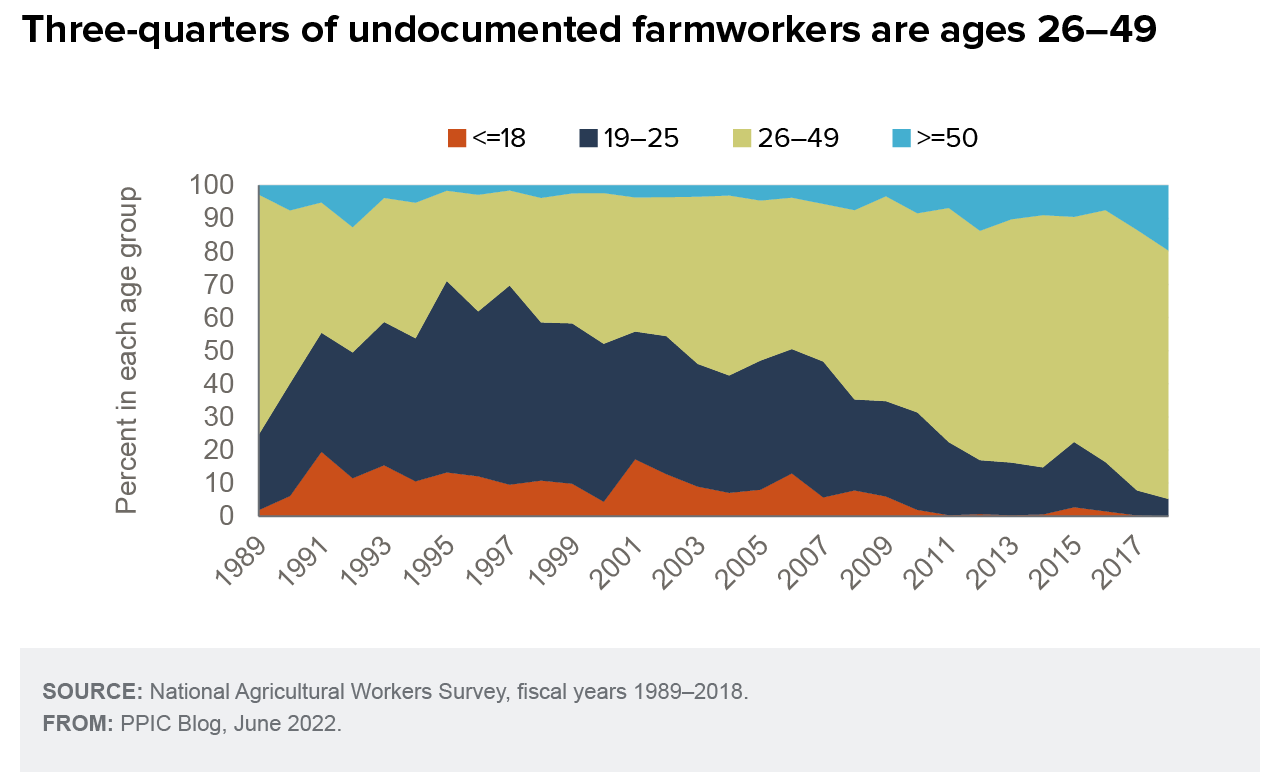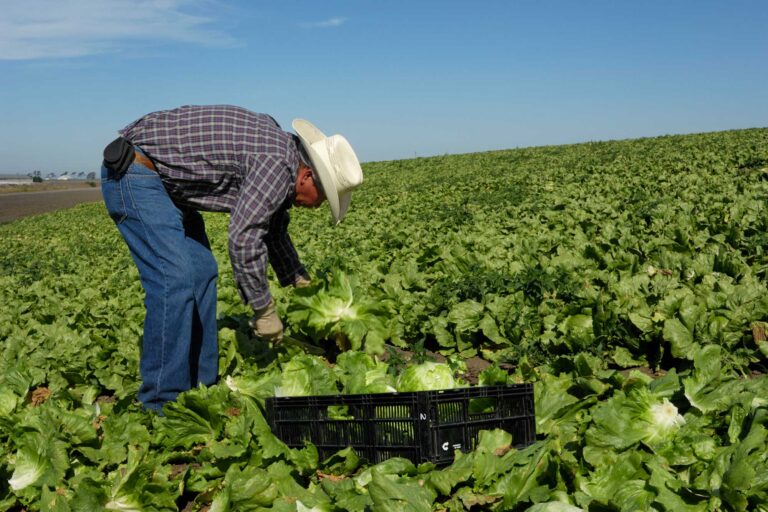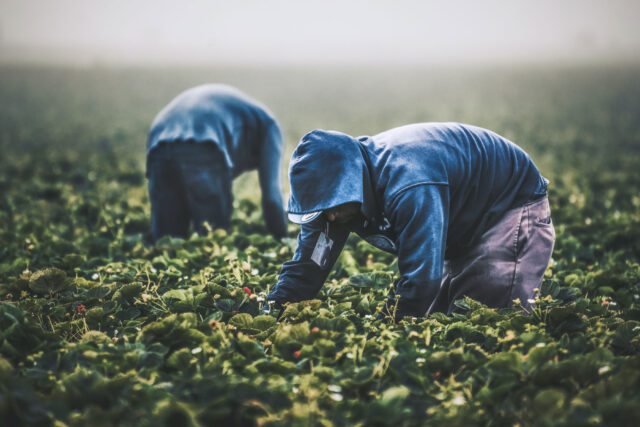Throughout the COVID-19 pandemic, farmworkers have continued their in-person essential work, in which physical fitness is essential. California agriculture, a sector that serves as a source of food for the state and for the nation, earned $50 billion in revenue in 2019—the fruits, nuts, and vegetables that make up most of the state’s crops depend on farmworkers for production and harvesting. But the image of farmworkers as young, healthy, immigrant men contradicts population trends for this workforce and raises concerns about farmworker health care and access to insurance coverage.
While farmworkers are still majority male (67%; based on the latest available data from fiscal year 2018) and overwhelmingly immigrant (92%), farmworkers in California have been getting older over the years. The average age for documented immigrant farmworkers is 47. Although undocumented farmworkers have tended to be younger, they, too, are aging (41 years old on average). With increased age comes greater health care needs, including recommended screenings for cancer and management of chronic diseases like hypertension or diabetes.
Low-income farmworkers who are US citizens or documented immigrants have access to comprehensive health insurance through Medi-Cal, but most undocumented farmworkers do not. Adults ages 26 to 49 are not eligible for Medi-Cal if they do not have satisfactory immigration status—about three-quarters of undocumented farmworkers are in this age group. Health care safety net providers like community clinics, public hospitals, emergency departments, and county programs for the medically indigent serve many low-income uninsured Californians, but undocumented farmworkers still get less care than their documented counterparts. Cost or lack of insurance is the primary reason low-income farmworkers miss out on health care.

When COVID-19 vaccines first became available, access lagged for farmworkers and many workers fell sick. However growers took a leadership role in vaccinating their workforces. Some employers reported vaccination rates as high as 90%.
Vaccine protection has waned over time, and the virus has continued to mutate and evade immunity from vaccination and past infection. Even when bolstered by a booster shot, vaccination wanes in its ability to protect individuals from becoming ill with COVID-19, according to findings from abroad. Nationally, this winter’s Omicron surge was deadlier for older adults despite their high rates of vaccination. Among farmworkers, the oldest are again most at risk.
Testing and treatment for the coronavirus is covered by Medi-Cal, regardless of immigration status, during the public health emergency. However, the last two and a half years have shown that COVID-19 will be an enduring threat, especially for Californians with in-person, essential jobs such as farmworkers.
Necessary healthcare for this aging population will now involve regularly updating coronavirus vaccines, along with managing the health consequences of the virus—such as long COVID. Undocumented farmworkers would benefit from the governor’s proposal to expand Medi-Cal access to all low-income Californians, regardless of immigration status.
For a wide-ranging discussion of these issues with a panel of experts, join PPIC’s virtual event, Health Care Access among California’s Farmworkers, on June 23.




